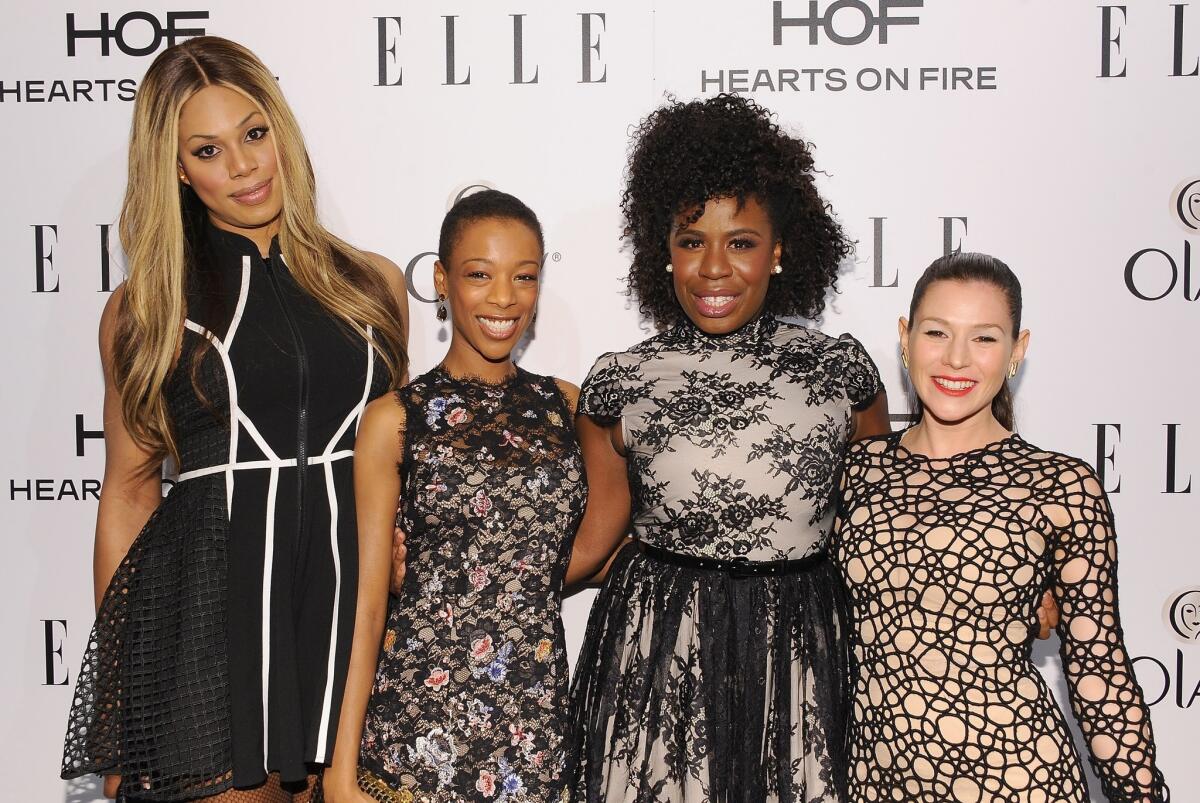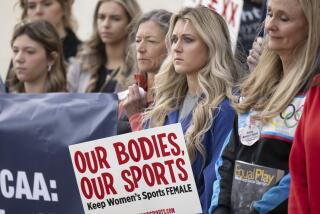Dear media: In covering transgender folks, remember, they’re people too

Earlier this month, the sports website Grantland ignited controversy over a story on Essay Anne Vanderbilt, also known as Dr. V, the inventor of a “scientifically superior” golf club dubbed “The Oracle.” In writing the article, titled “Dr. V’s Magical Putter,” reporter Caleb Hannan discovered something he didn’t expect about his subject: She was a transgender woman. In October, Hannan writes, Dr. V killed herself before his article was even finished.
Responding to her suicide within his piece, Hannan wrote:
“Writing a eulogy for a person who by all accounts despised you is an odd experience.... Those who knew her in her past life refused to talk about her. The only person who can provide this strange story with its proper ending is the person who started it.”
Although Hannan’s account was initially lauded on Twitter -- it was called “the best story Grantland has ever had” -- soon critics were calling out the story for what they saw as its troubling display of disrespect for transgender people. Dr. V, as Hannan writes, had urged him to “focus on the science and not the scientist.” Of course, a reporter’s job is to be honest, but when it comes to complicated identity politics, the media’s truth-telling must be done with sensitivity and respect for the subjects.
In a piece on Jezebel, writer Tracy Moore points out Hannan’s “callous disregard for Vanderbilt’s privacy regarding her trans status.” As Moore suggests, it was necessary for Hannan to expose Dr. V’s lies about her educational background, but her gender identity wasn’t a cover-up. It was her life.
“Everyone has a right to privacy when it comes to their gender identity or sexual orientation, and beyond this, [Vanderbilt’s] trans status is not relevant,” Moore argued. “Hannan should have treated those pieces of information as distinctly different: It is one thing to not wish to disclose gender identity information or sexual orientation, it is another to lie about your education and work experience.”
For Moore, the takeaway is that you shouldn’t out a subject who doesn’t want to be outed because of the personal costs, yet it’s also a sad indication of the media’s lack of knowledge about transgender people. “When editors and reporters have the luxury (and privilege) of not being educated about issues foreign to them, this is what can happen — inadvertently contributing to a tragic confluence of events by at bare minimum, not even understanding the risk for tragedy,” Moore wrote.
However, this is hardly the first time the media have shown difficulty discussing transgender issues. A few weeks ago, Katie Couric invited transgender actresses Carmen Carrera and Laverne Cox on her daytime talk show. Rather than using the moment as a way to get to know these two inspiring subjects, Couric subjected them to invasive questions about their surgeries -- and their private parts.
But they weren’t their to talk about their genitals. As Cox explained to Couric, “I think that the preoccupation with transition and with surgery objectifies trans people and then we don’t get to deal with the real lived experiences.”
In a response for Elle magazine, author Janet Mock reminded us that these moments are too often the norm in reporting about transgender people. Whether incorrectly identifying the gender of murdered trans women or showing a basic misunderstanding of what’s appropriate to ask, our culture too often misses the mark on trans issues.
“This story is larger than Couric; it’s about our culture and its dehumanization of trans people’s bodies and identities,” Mock wrote. “Because trans people are marked as artificial, unnatural, and illegitimate, our bodies and identities are often open to public dissection.... Folks often take it as their duty to investigate our lives to see if we’re real.”
Mock argues that the Couric interview was a powerful moment of “flipping the script,” as the actresses shot down Couric’s questions and showed the “the transformative power of solidarity and sisterhood.” The media should stand alongside them, which means taking responsibility when getting it wrong and working to do better.
We can start by remembering that transgender folks are people, just like the rest of us. In a piece for Poynter.org, Lauren Klinger offers this simple rule of thumb: “Remember that transgender women are women, transgender men are men, and everyone is human.”
This also means looking to those who are doing it right by promoting education and understanding. In response to Couric’s flap, for example, CNN published a useful guide on “what not to say to a transgender person.” And Emily Alpert Reyes’ recent article in the L.A. Times took a look at how YouTube is in the vanguard of helping transgender people tell their stories and find community. It’s a reminder of the power media have to change lives.
ALSO:
Hollywood, propaganda and liberal politics
Are the 1% in the U.S. treated like the Jews in Nazi Germany?
Didn’t anyone care about Metallica’s war-is-hell anthem at the Grammys?
Nico Lang is a gay activist and contributor to Rolling Stone, the Advocate, Salon and the Huffington Post. Lang is also co-editor of the “BOYS” anthology series. Follow him on Twitter @Nico_Lang.
More to Read
Start your day right
Sign up for Essential California for news, features and recommendations from the L.A. Times and beyond in your inbox six days a week.
You may occasionally receive promotional content from the Los Angeles Times.






